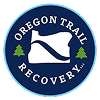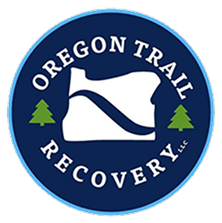
Newsletter #45 - Shifting From Passive to Active Recovery

Recovery is a journey that requires more than just going through the motions. To truly thrive, it's essential to shift from a passive approach to an active one. Taking charge of your recovery can significantly impact your progress and long-term success.By being proactive and engaged, you can build a stronger foundation for lasting sobriety. Let’s explore how to make this shift and the benefits it brings.
Understanding Passive vs. Active Recovery
Passive recovery means attending meetings or therapy sessions without fully engaging or applying what you learn to your daily life. In contrast, active recovery involves taking initiative, setting goals, and fully participating in your healing journey.
Benefits of Active Recovery
Active recovery empowers you to take control of your life and your sobriety. It helps you build resilience, develop healthier habits, and create a sense of purpose. By being proactive, you’re more likely to identify and address potential triggers before they become problems.
Steps to Shift from Passive to Active Recovery
- Set Clear Goals: Define what you want to achieve in your recovery. These could be short-term goals like attending all your therapy sessions this month or long-term goals like rebuilding relationships with family.
- Engage in Therapy: Actively participate in your therapy sessions. Don’t just show up—apply the techniques and strategies discussed to your daily life. Be open and honest with your therapist about your challenges and progress.
- Join Support Groups: Engage fully with support groups. Share your experiences, listen to others, and offer support. Being part of a community can provide motivation and accountability.
- Practice Self-Care: Prioritize activities that support your well-being, such as exercise, meditation, and hobbies. Taking care of yourself physically and mentally is crucial for maintaining sobriety.
- Learn Continuously: Educate yourself about addiction and recovery. Read books, attend workshops, and seek out resources that provide new insights and strategies.
- Monitor Your Progress: Keep track of your progress and celebrate your achievements, no matter how small. Reflect on what’s working and what needs adjustment.
Practical Tips for Active Recovery
- Be Proactive: Don’t wait for things to happen. Take initiative and seek out opportunities that support your recovery.
- Stay Committed: Consistency is key. Stick to your recovery plan and adjust as needed.
- Seek Support: Don’t hesitate to ask for help when you need it. Lean on your support network.
- Reflect Regularly: Take time to review your progress and make adjustments to your approach.
Final Thoughts
Shifting from a passive to an active approach in recovery can be transformative. It puts you in control of your journey and empowers you to build a healthier, more fulfilling life. Remember, every step you take actively contributes to your growth and long-term sobriety.Stay engaged and take charge of your recovery!
Best,
Ben Randolph
503-901-1836







